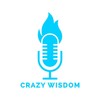
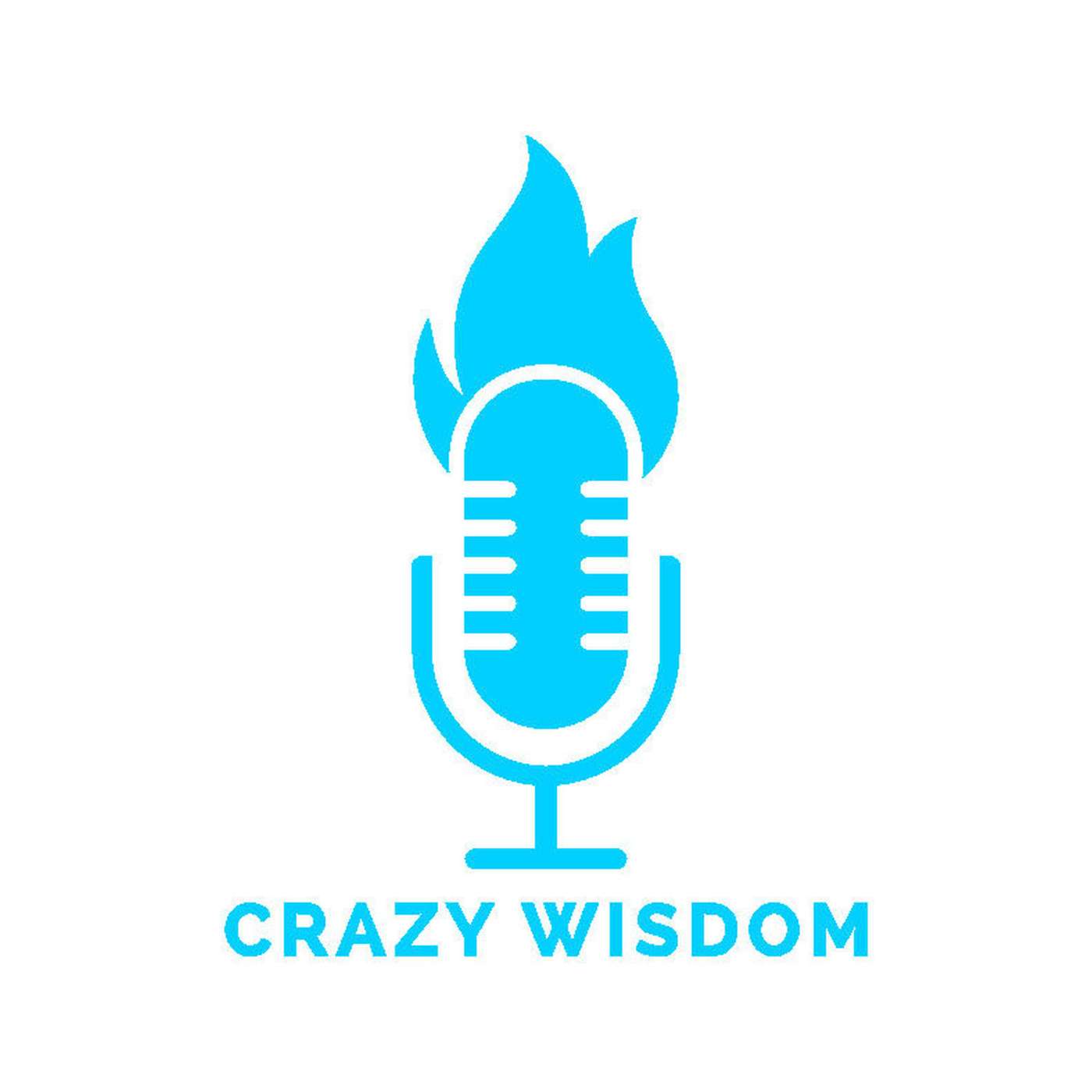
Crazy Wisdom
Stewart Alsop
In his series "Crazy Wisdom," Stewart Alsop explores cutting-edge topics, particularly in the realm of technology, such as Urbit and artificial intelligence. Alsop embarks on a quest for meaning, engaging with others to expand his own understanding of reality and that of his audience. The topics covered in "Crazy Wisdom" are diverse, ranging from emerging technologies to spirituality, philosophy, and general life experiences. Alsop's unique approach aims to make connections between seemingly unrelated subjects, tying together ideas in unconventional ways.
Episodes
Mentioned books
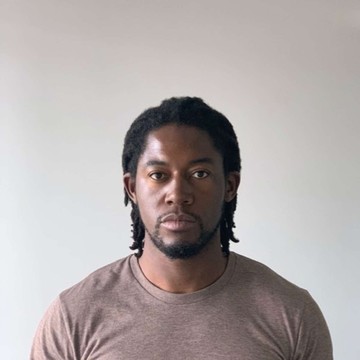
May 5, 2021 • 1h 5min
What exactly is an NFT? - Daliso Ngoma
Daliso Ngoma is the founder and Managing Director of African Technopreneurs which is focused on providing the best AR/VR/360 camera hardware in South Africa. In this episode we discuss NFTs, Crypto, blockchain, trust, thinking for yourself, avoiding self-deception, and much more. You can find Daliso on Twitter and Instagram at @djngoma. Enjoy. (5:24) What is the connection between VR and crypto? Is it possible that they’re going to merge into one? (7:41) What exactly is an NFT? What does it actually mean to own one? (14:55) Is there a difference between shame and guilt? What is it? (17:14) Can you trust centralized social media platforms? Is crypto/blockchain a stepping stone to freedom of expression on the internet? How should you navigate decisions with contradicting information? Such as deciding whether to take the vaccine or not? (19:46) Do you really think for yourself? (23:33) Why you should be skeptical of how internet platforms (e.g., social media and websites) use the data you give them. (30:49) Self-deception: How Daliso tries to avoid bullshitting himself. (35:00) Why do people get so emotional when arguing on Twitter? (37:55) How South Africa is handling lockdowns. (47:57) What’s the crypto space in Africa like? (53:34) Can you pay for stuff with bitcoin in South Africa?
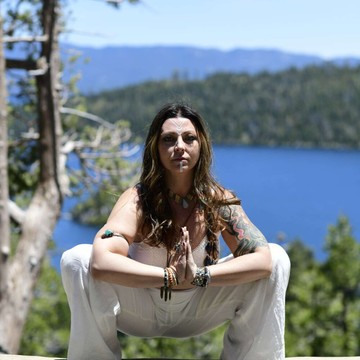
May 3, 2021 • 48min
What is the relationship between fear and healing - Keia Lavine
Keia is a Medicine Woman who organizes ceremonies for ancestral medicine. Her aim is to help people transform their lives life into empowered and abundant experiences through facilitating awakenings and supporting healing. In this episode, we discuss plant medicines, what it means to heal, the relationship between fear and healing, the goal of healing, and much more. You can find Keia on Twitter at KLMedicinewoman, and on Instagram at keialavine. Enjoy! (3:29) What is healing? What does it mean to heal? How can you tell when someone, in front of you, is healing from something deep? (6:14) What is the relationship between fear and healing? Is it possible to be afraid of healing? (14:14) The role of pain in healing. (15:05) How much of your decision-making is based on fear? (17:57) The place we must get to, on the inside, if we’re to face the fear of healing. (24:57) Why healing isn’t for the faint-hearted. (32:20) What are “being needs” and “having needs”? How can they help us find meaning? (41:07) What was it like to grow up in an indigenous tradition?

Apr 28, 2021 • 1h 5min
Will exoskeletons ever become mainstream? - Nikhil Verma (MD)
Nikhil Verma is a medical doctor who specializes in treating and managing spinal health, mobility, chronic pain, and athletic health among others. In this episode, we discuss chronic pain, the various ways chronic pain is managed, transhumanism, muscular tension, and the possible future interventions in managing chronic pain. You can find Nikhil Verma on Twitter at VermaN21 and on Instagram at dr.nvsportandspine. Enjoy! (5:44) What is a notochord? (10:18) What portion of pain is subjective and what portion is objective? How much do we know about each of these components? Nociceptive vs Neuropathic pain. (14:40) What do we know about the memory component of subjective and chronic pain? And why is it so misunderstood? (18:02) Why opioids are terrible widespread methods for treating chronic pain. (19:54) How can we get better in touch with our endogenous opioids? (24:50) Is there such a thing as too much mobility? (26:44) Is there evidence that weightlifting helps manage chronic pain? (29:56) How does the brain create a unitary picture of experience? (33:10) Transhumanism, the ways people apply it to managing chronic back pain, and the problems with it. (41:45) Is there a relationship between muscular tension and chronic pain? Why are float tanks so effective? (48:55) What is the potential of stem cell regeneration for chronic pain? Do psychedelics or ketamines play any role in the future of treating chronic pain? (55:53) Will exoskeletons ever become mainstream? Are there any disadvantages to this?
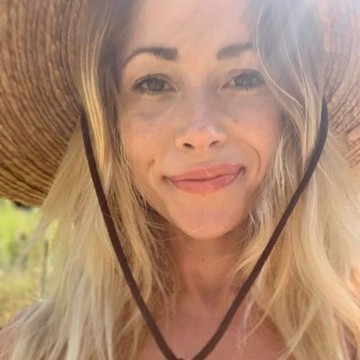
Apr 19, 2021 • 59min
Why do kids get cancer? - Courtney Hodges
Courtney is passionate about helping children with cancer and in this episode, we discuss the shortcomings of the medical industry, their misinformed directives, their indirect undermining of human endurance and adaptability, living off the grid, achieving independence from the system, and much more. Enjoy 2:07 The patient advocate: how Courtney helps children who have cancer and their families. 6:31 Why do kids get cancer? Do you know that in adults 90% of cancers have environmental causes? 8:45 How the medical industry, in its current form, prevents people from understanding how durable and capable their bodies are 11:44 How current medical protocol prevents doctors from paying deep attention to patients’ needs. 16:55 What does it mean to be “sensitive”? Does the word have multiple interpretations? 21:00 How do we “tear down” the “system”? 24:38 The largest political ingroup in the U.S is not who you think it is. 29:19 A big thing you can do to reduce your dependence on, and participation in, the system. 31:19 Is it possible to be in a codependent relationship with flowers and plants? 34:30 For quality planting tips revisit my episode with 35:32 How important is it to make money doing the things you love? Is it always doable? 39:49 Does free will exist? Do you really have agency over your choices? 45:52 The neuroscience of internal resistance 49:40 Tools for dealing with fear
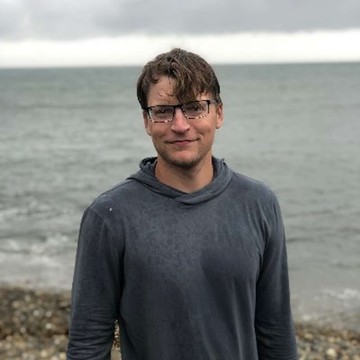
Apr 16, 2021 • 1h 18min
God, the boundaries of Biology, and Free Will - Woody Wiegmann
A collaborative episode with Woody Wiegmann, host of Courage over Conviction podcast. In this episode, we discuss the existence of free will, and try to determine where choice ends and determinism begins. We discuss psychology, making the unconscious conscious, the pitfalls of human hubris, hedging against terrible fiscal policies and much more. Enjoy. (1:22) What is free will? How do we decide our actions? Do we really decide? Does free will actually exist or are we slaves to determinism? (10:12) The Iboga mystery. Why is it so effective with heroin withdrawals? What can Iboga, and plant substances in general, teach us about Biochemistry, and in turn free will? (13:58) Should psychology be a science? We don’t really understand qualia; all information comes to us through a subjective filter and we don’t fully understand that filter, so should psychology be seen as hard science? (17:24) Would it actually matter if our feeling of free will was actually a delusion? What if we just need to feel strongly like we have free will, what if it’s a mechanism that prevents us from drowning in the complexity of the world? (18:33) Woody’s answer to the mystery of free will (19:43) Stewart’s approach. (21:38) Does a deterministic approach make you more compassionate? (36:15) How much of our unconscious can we make conscious? How aware can we be of our own shadow? (42:20) How learning and knowledge-sharing have evolved and sort of given humans the ability to become books, and how this could lead to human evolution (45:48) The role of wealth in human evolution (48:21) The potential pitfalls of engaging in genetic engineering (53:58) Is it possible to resolve all of your inner biases? Is it possible to be free of bias? Or does bias have a role in humanity? (57:48) Why you should be wary of financial planners with fancy graphic presentations (1:00:08) How the separation between the treasury and the feds seems to be lessening and the risks associated with this phenomenon. (1:06:07) Can crypto serve as a hedge against inflation and horrible fiscal policies? (1:07:42) Alternative hedging options to Bitcoin
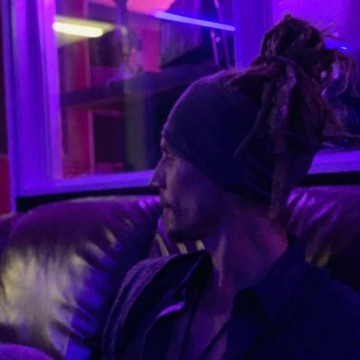
Apr 7, 2021 • 34min
Do you know you can make music with plants? - Joshua Morrison Cooper
Joshua Morrison Cooper is the creative coordinator at Happiness and in this episode, we discuss gardening, the healing power of plants, how to get started with planting, how big agricultural practices deplete the quality of soil, government initiatives to help people interested in planting, and much more. We also spoke about Joshua's unique type of music, which you can listen to here: https://soundcloud.app.goo.gl/1QTKWSH9FVPks1M3A Enjoy. (1:53) Do you know you can make music with plants? Find out how (6:11) How working with plants helps you heal. Do you know that your body generates a certain kind of electricity, that under the right circumstances, can heal you? (10:49) How commercial farming techniques have depleted soil quality and nutrition (11:29) Some healthy alternatives to pesticides you can use in your home garden (21:00) What do you need to understand about plants and the planting process, if you want to work with them? (23:47) What are some things to be aware of in terms of how the government might be able to help you grow stuff if you’re interested? (25:55) What is vertical farming and how is it useful?
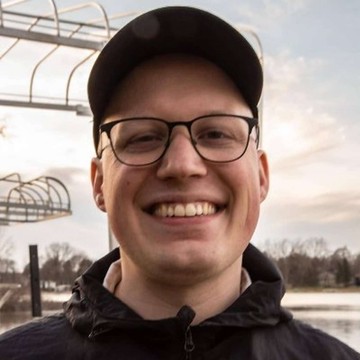
9 snips
Mar 22, 2021 • 57min
What is a fab and why is it the next big thing in the manufacturing industry? Matt Parlmer
Matt Parlmer is the founder of General Fabrications, a firm devoted to democratizing production and the supply chain across a lot of industries. In this episode, we discuss his company's products, fabs, and delve into how they're going to revolutionize the manufacturing system and the various ways and fields in which they could be applied, such as in homesteading, moulding, and so on, as well as the possibilities they could unlock for humanity. You can find Matt on Twitter as @mattparlmer and General Fabrications as @genfabco. Enjoy!
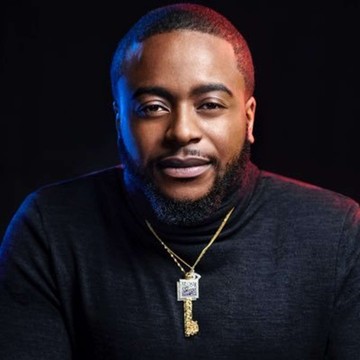
Mar 16, 2021 • 58min
Why you should reach out to strangers you admire online - Rodney Gainous Jr.
Rodney Gainous is the founder and CEO of Safe, a company dedicated to providing more easy-to-use privacy tools for individuals and businesses. In this episode, we discuss the changes Corona has wrought, the importance of sending cold emails, the importance of location for networking, and much more. Enjoy! You can reach Rodney on Twitter at Rg2official. (7:59) Do you need to move to the Bay area, or tech hubs in general, to be able to fully chase your dreams of working in tech? What are the merits of doing so? Can you run a tech startup from any location? (11:09) Even if you choose to run your tech startup from outside a tech hub, is an experience of the tech hub necessary or helpful to have? (15:01) The difference between knowing a lot about a place and actually living in a place. (16:56) How to build a network in today’s Post-Covid world, despite all the restrictions posed by lockdowns. (19:58) Why you should learn to reach out to strangers, founders and people you admire, online more often. (Hint: a lot of them are more open than you think) (20:41) What is the value of being open in the business world, especially as a founder? (25:15) Is it good to be upfront about what you want when interacting with a stranger you want something from or are you better off building a relationship first? Where is the line? What is the right way to go about it? (29:43) A tip to help increase the open rates for your cold emails. (37:02) As a tech founder, how should you treat hype? Both hype of your company and external tech-related hype that generates FOMO? (47:51) Why is Miami receiving so much hype? Apart from it potentially being the new base for Silicon Valley.
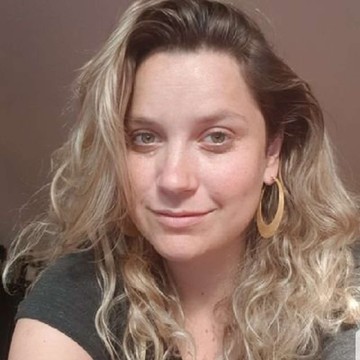
Mar 4, 2021 • 3h 4min
Can AI be taught to hold a conversation? - Bruna Paese
Bruna Paese is the CEO of Iubi, a social robot that helps people improve their health. We had a marathon of an interview -my longest ever- at three hours. And in this episode, spoke about language, decision making, learning, drug use in Brazil, Banks, health, poverty, wealth, and so much more. Enjoy! (1:55) The nuances of language, how different slang can develop among different cultures sharing the same language. Can AI learn to note the differences in accents across non-native speakers of English? Is this current inability of AI to account for accents a failure of technology or is it a result of cultural bias? If even humans can’t appreciate all the nuance that exists in spoken language (i.e., tonality, pitch, etc.) can computers be expected to do the same? (7:25) Why do people go to therapy? Are actions similar to thoughts? We understand how people act and react to stuff, but do we understand how they think? Why is it important to understand how people think? (9:29) Why is Big Tech so concerned with the exploration of Mars? (13:42) How does Brazil rank in the AI revolution? What does the AI scene look like in Brazil? How does it work? What are its rules? (16:39) Brazil has half the population of Latin America and is the country with the largest landmass in South America, yet Chile, a much smaller country, manages to accumulate the same number of yearly tourist visits as Brazil, why? (22:54) Brazil’s big advantage; what is Iubi about? What does it do? How Bruna got the idea to start? (40:34) Is Iubi a robot, a human being, or a combination of both? (45:40) Conspiracy theories. Was COVID manufactured? Did China have a game plan? How do conspiracy theories form? Are conspiracy theories the result of using particular modes of communication? Where did the term “conspiracy theory” come from? How human nature makes it easy for us to accept unverified information. (58:16) What tests or markers can you use as a measure of fitness? (1:08:18) The global asset that is in demand but has very little supply (1:08:56) Drug history in Brazil; the value of history and how it shows the connection between everything. (1:19:27) The general argument is that drugs are a means to escape reality, but what if the opposite can also be argued? What if drugs actually support reality? What would that look like? (1:32:18) Why does cannabis have such a negative association, compared to other plant-based substances, like ayahuasca or psilocybin? (1:39:54) Why Iubi is focused on children (1:42:39) The unseen impact of environment on health (1:46:03) Given the access to nature people in the United States have, why aren’t we as nature-centered, especially in the materials we use to produce medicine, compared to countries like Brazil and India? How does culture limit or improve the overall health of a population? (1:49:26) Why language is more about connection than discovering truth. (2:07:50) Is the impact of COVID-19 on poverty and thus crime rates universal worldwide? (2:10:27) What is the truth about mental health? Is it an inborn pathology or a result of the environment you grew up in? Does expecting a person diagnosed with mental health issues to act crazy make them act crazy? And thus, what are the ways we treat patients diagnosed with mental health issues that cause them to respond negatively? (2:18:20) What is the future of pharmaceuticals? Where will technology take it? (2:22:32) How to create an ecosystem for innovation to thrive. (2:26:13) What is Brazil’s take on cryptocurrency? How deeply is it integrated into their financial system? How international transactions between banks actually work. (2:38:55) Why is it still possible to transfer money illegally between countries? Is it all because cash runs everything? And the governments can't actually see everything happening? (2:42:44) The lines between corporations and the state are thinning in many countries; CEOs or megacorps are gaining greater ability to influence government policy; can this new system still be called capitalism?
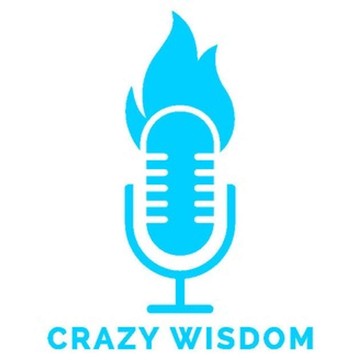
Feb 20, 2021 • 1h 8min
How can we make our forests resilient again? - Gabriel Bolzani
This episode focuses on self-sufficiency through living off the land and growing your own food, agroecology and restorative farming, escaping the control of governments worldwide, and basically living a life that allows you to thrive physically, all of these in light of the events of the pandemic. Enjoy! (2:50 - 3:40) The difference between city and rural life, and how that contrast, unwittingly, showed Gabriel the difference between learning about a course in college and actually living the reality of said course. (4:33 – 6:10) Now that the world as we know it has ended, what shifts in thinking and culture will have to be made to enable people thrive in the coming age? (7:42 - 8:34) The ethical, nutritional, and environmental benefits of oysters and growing oyster farms. (10:52 – 12:56) How Gabriel restored a portion of land that had been severely degraded from years of serving as pasture for horses and was unable to grow grass and made it rich, fertile farmland with more than a hundred varieties of plants, including fruit trees and cash crops, all within a year. (14:19 – 19:29) How human activities affect ecology; how pests and insects interact to contribute to nature’s ecology (22:22 – 27:01) Will more people embrace retiring to the country to farm their own lands and grow their own foods? Will the events and fear-mongering by governments worldwide, during the pandemic, cause the shifts necessary to make people seek self-sufficiency? Brazil as an example of how culture, if strong enough, can influence government directives; Are we currently living in an Orwellian world or a Huxleyan world? (27:45 – 30:01) There’s nothing wrong with vaccines, but given everything we know about COVID, does everyone have to take it? Given that we don’t know the long-term effects, is vaccinating everyone, including those who have already had covid and those who haven’t had it, worth the risk? (30:37 – 37:19) Organic vs inorganic farming; given that there are harmful organic pesticides, is organic farming really all the PR surrounding it makes it out to be? How do practitioners of agroecology cope with abstinence from the use of pesticides? How does this affect their crop yield and their ability to make a living? How do we incentivize restorative agriculture on a large scale? (46:48 – 53:09) How some commercial farmers are implementing regenerative agricultural practices. How money can help the incentivization of restorative farming. Are conscious consumers really making a difference or are they just being ripped off by capitalists trying to take advantage of their guilt? Does knowing the process of how food is made really change consumers’ relationship to food? Or is convenience the driving force?


